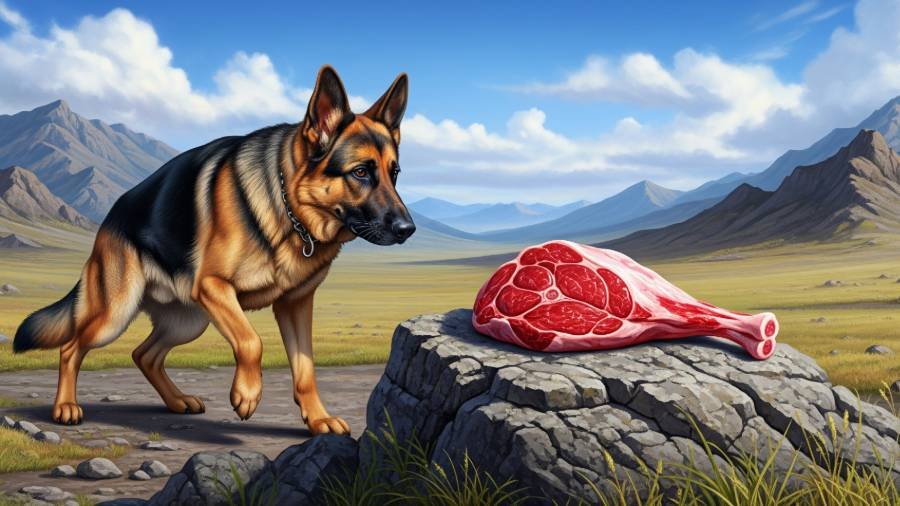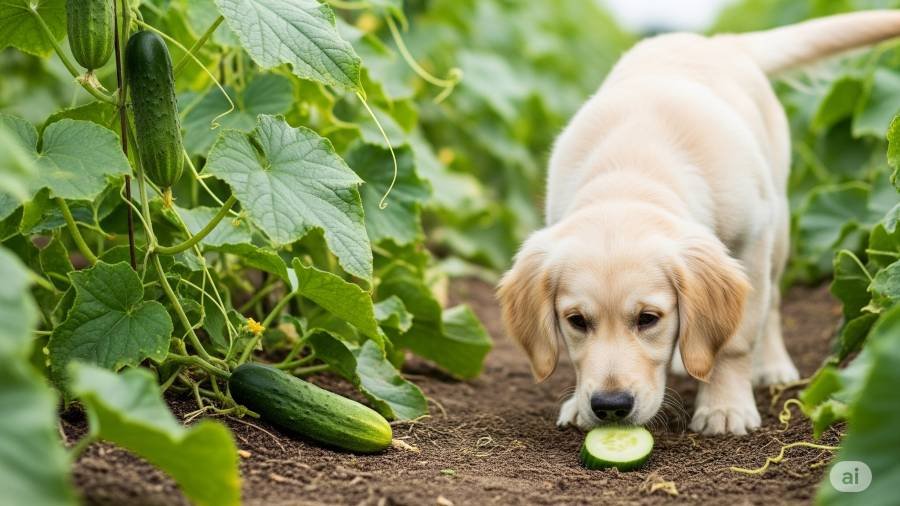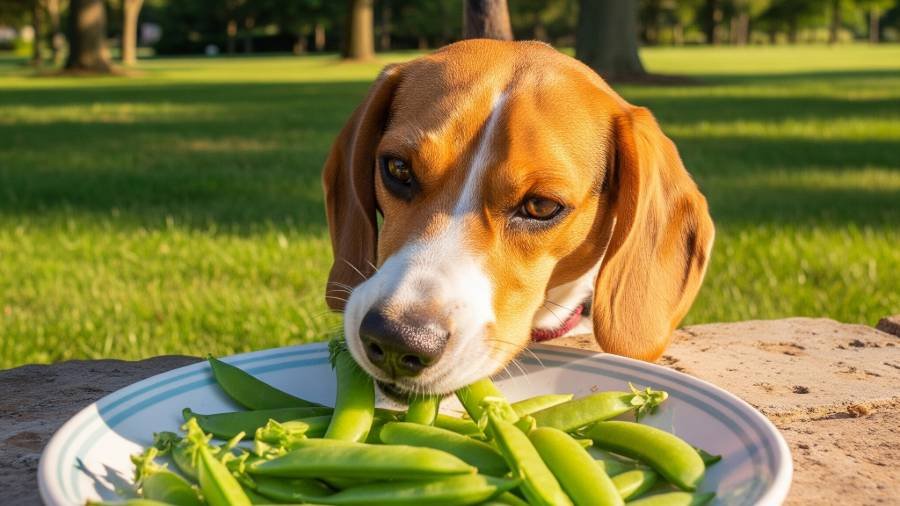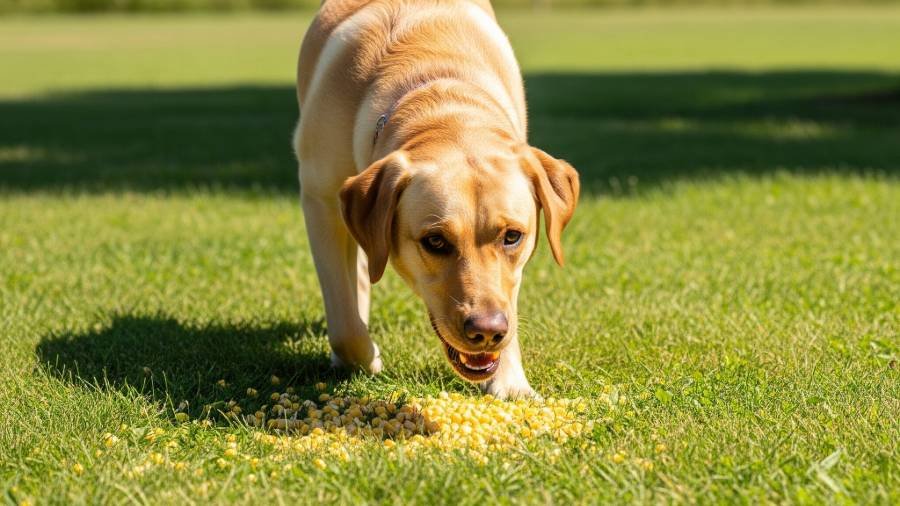Yes, dogs can eat raw meat as part of a raw food diet, but it comes with potential health risks that require careful consideration and proper handling raw meat practices.
While some advocate for raw pet food diets for dogs, including raw meat good for its natural nutrients, it’s essential to balance benefits with safety.

Potential Benefits of Raw Meat for Dogs
When dogs can eat raw meat in a controlled manner, it offers several potential advantages for a balanced diet:
- Meat Good for Dogs: Raw meat provides high-quality protein and essential amino acids, supporting muscle growth and energy.
- Natural Enzymes: Unprocessed meat retains enzymes that may aid digestion, appealing to dogs on raw food diets.
- Improved Coat and Skin: The natural fats in raw meat can enhance a dog’s coat and skin health.
- Dental Health: Chewing raw meat or bones (if vet-approved) may help clean teeth and strengthen jaws.
- Nutrient Retention: Cooking meat can reduce certain nutrients, and raw meat good preserves vitamins like B12 and iron.
These benefits are most effective when feeding your dog raw meat as part of a well-planned diet supervised by a professional. For more on safe proteins, explore can dogs eat turkey.
Risks and Dangers of Raw Meat for Dogs
Despite its benefits, raw meat poses significant health risks that cannot be ignored:
- Harmful Bacteria: Raw meat can harbor pathogens like Salmonella, E. coli, and Listeria, posing risks to dogs’ immune systems and human handlers, according to the Centers for Disease Control (CDC).
- Parasites: Raw meat may contain parasites such as Toxoplasma gondii or tapeworms, leading to severe illness.
- Nutritional Deficiencies: A poorly balanced raw pet food diet may lack essential vitamins and minerals, causing long-term issues.
- Bone Hazards: Raw meat with bones can splinter or cause choking, though less likely than with cooked meat.
- Foodborne Illness: Dogs with weakened immune systems or puppies are more susceptible to infections from eating raw meat.
- Cross-Contamination: Handling raw meat improperly can spread bacteria to other foods or surfaces, endangering the household.
How to Safely Feed Raw Meat to Dogs
To minimize risks when feeding your dog raw meat, follow these guidelines:
- Source Quality Meat: Use fresh, human-grade raw meat from reputable suppliers to reduce bacterial and parasite risks.
- Proper Handling: Wash hands, utensils, and surfaces after handling raw meat, and store it at safe temperatures (below 40°F).
- Balance the Diet: Consult a veterinary nutritionist to ensure a dog raw meat diet includes organs, bones, and supplements to avoid nutritional deficiencies.
- Feed in Moderation: Start with small portions (e.g., 2-3% of body weight daily, split into meals) and gradually increase, keeping it part of a balanced diet.
- Avoid High-Risk Cuts: Steer clear of poultry or pork unless frozen for at least three weeks to kill parasites.
- Monitor Health: Watch for signs of illness (e.g., vomiting, diarrhea) for 24-48 hours after introducing raw meat, and consult a vet if issues arise.
- Veterinary Approval: Seek advice from the American Veterinary Medical Association (AVMA) or your vet before starting a raw food diet, especially for puppies or senior dogs.
Signs of Raw Meat-Related Issues
If a dog eats raw meat and reacts poorly, look for these warning signs:
- Vomiting, diarrhea, or bloody stools (possible bacterial infection)
- Lethargy, fever, or loss of appetite (indicators of illness)
- Abdominal pain or bloating (digestive obstruction)
- Excessive thirst or dehydration (from infection)
- Neurological symptoms like tremors (rare parasite effects)
If these signs appear, stop feeding raw meat and contact a veterinarian immediately. Severe cases may require antibiotics or hospitalization.
Expert Opinions
The American Veterinary Medical Association (AVMA) and the Centers for Disease Control caution against raw meat diets for dogs, citing risks of bacterial contamination and nutritional imbalances. However, some holistic veterinarians support raw pet food diets when carefully managed, emphasizing quality sourcing and veterinary oversight. For more on safe feeding options, check can dogs eat ground beef.
Additional Considerations
- Health Conditions: Dogs with liver disease, immune disorders, or a history of pancreatitis should avoid raw meat. Consult a vet first.
- Puppies and Seniors: Young or elderly dogs may have weaker immune systems, increasing raw meat risks.
- Dog Preferences: Some dogs thrive on raw food diets, while others may not digest it well. If uninterested, try can dogs eat chicken bones.
- Cost and Effort: Raw diets require time, expense, and knowledge to balance nutrients.
- Legal and Safety: Check local regulations, as some areas restrict raw pet food sales due to health concerns.
Safe Treat Alternatives
Instead of raw meat, consider these safe-for-dogs treats, tailored to enhance a dog’s diet:
- Cooked Turkey: Plain, unseasoned turkey provides lean protein.
- Cooked Salmon: Deboned, cooked salmon offers omega-3s.
- Carrots: Small, raw carrot sticks support dental health.
- Plain Yogurt: A teaspoon of Greek yogurt aids digestion.
Introduce new treats gradually, monitor for reactions, and consult a vet to ensure a balanced diet.
Dogs can eat raw meat as part of a raw food diet, offering potential benefits like natural enzymes and nutrient retention when handled properly and balanced with other foods.
However, health risks from harmful bacteria, parasites, and nutritional deficiencies require meticulous sourcing, handling raw meat practices, and veterinary guidance to ensure safety. Puppies, seniors, or dogs with health issues should avoid raw meat unless approved by a vet, and a cooked meat diet may be a safer alternative for many.
Always consult the American Veterinary Medical Association or your veterinarian before feeding your dog raw meat, and consider safe treat options. For more on canine nutrition, explore can dogs eat eggs, can dogs eat beef jerky, or what vegetables can dogs eat.
For additional questions about what dogs can eat or dietary plans, feel free to ask!





